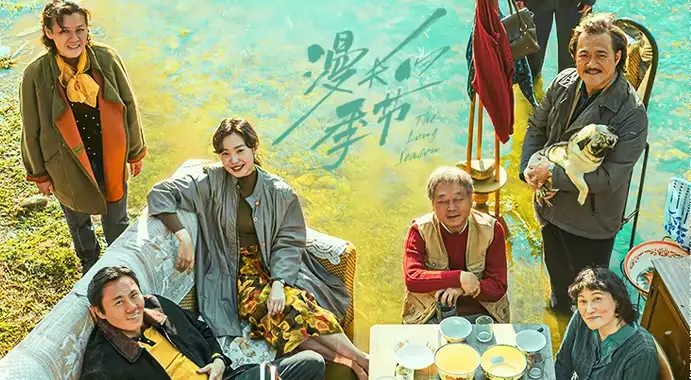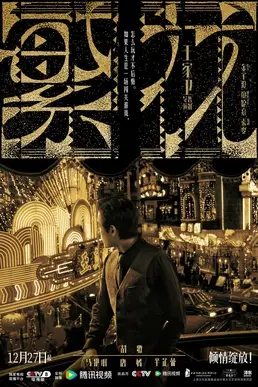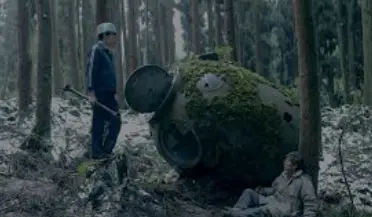watching in 2024 : Various Approaches to Coexisting with Fate

Watching in 2024 : Various Approaches to Coexisting with Fate
Xiangzi felt he hadn’t worked hard enough even until his death. Of course, Xiangzi only focused outward, believing he had seen the world clearly. Yet, he overlooked one thing—looking outward enables one to see all corners of the external world but leaves one unable to see oneself clearly, making it impossible to discuss oneself and this era. As the protagonist, perspective is always outward, but as readers, we can observe the “world and me,” then reflect inwardly. Therefore, as Lu Zhishen said, “Only today do I realize who I am,” and I believe he meant precisely this.
The best TV shows often feature this twist, much like a marvelous painting, whose stunning exterior alone is enough to captivate viewers. However, if the underlying structure and concepts can move people further, it truly becomes art.
The discussion on fate in 2023 could cater to both the chroniclers and the absurdists.
“Blossoms Shanghai” and “The Long Season”
“Blossoms Shanghai” and “The Long Season” both belong to the chronicler school. People often feel helpless in the course of the world’s development.
In “The Long Season,” Wang Xiang finds himself bewildered as to why, as a “model worker,” he’s being laid off, his son has become a murderer, and those around him haven’t figured out life. With snow falling for 20 years, he’s never managed to overcome this hurdle, constantly haunted by ghosts of the past. In a moment of silence, he asks his son Wang Yang, “Do you believe in fate?” Wang Xiang and Biaozi can’t make sense of life anymore, both beginning to believe it’s all just “fate.”
In “Blossoms Shanghai,” Wong Kar-wai depicts missed opportunities, with Ah Bao and four women—Xuezhi, Lingzi, Miss Wang, and Lili—all missing out. Their mismatched wealth, locations, identities, and experiences lead to emotional twists and turns. It’s said, “From the start of Zhi Zhen Garden, all outcomes were already predetermined,” and “Everything is the inevitable fate.” Walking in the vortex of fate, people will eventually drift apart, leaving only themselves behind.
“Only the River Flows” and “Journey to the West (sff)”
“Only the River Flows” and “Journey to the West (sff)” belong to the absurd school. The clustering of improbable events leaves one bewildered.
In “Only the River Flows,” Ma Yuan refuses to acknowledge that the madman committed murder, drifting further away from the truth. The film quotes Camus: “Humans cannot understand fate, so I disguise myself as fate. I put on that stupid and incomprehensible face of God.”
In “Journey to the West (sff),” Tang Zhijun believes that fate is guiding him to find extraterrestrials. Every coincidence is inevitable. From the perspective of the protagonist, we always look outward, mockingly taunting Kong Yiji. However, as readers, we can perceive their different attitudes towards fate.
“The Long Season” is about reconciliation
A snowfall lasting for 20 years is quite prolonged, much like a truth waiting to be revealed for two decades. With the snap of a finger, with a resonating snap, distant things will be shattered, yet those present remain unaware.
Wang Xiang corresponds to the snap of a finger, as one case has kept him stuck for twenty years. Initially, he believed that only through his diligent efforts could he avoid being laid off. The turning point comes during a workers’ meeting when the truth is revealed—the factory owner fires and retains workers at will, and the asset stripping is his doing. Finally, Wang Xiang erupts, realizing the decay within Northeastern factories. Unable to resist the changes of the era individually, he, like the essence of “One Sentence Is Ten Thousand Sentences,” strives to grasp the answers he seeks and continues looking forward. Fate may be relentless, but people must learn to move forward.
“Blossoms Shanghai” is also about reconciliation
Ah Bao can become Mr. Bao when he steps in, but he’s willing to continue being Ah Bao when he steps out, remaining calm and collected1, embodying the motto of “The Count of Monte Cristo"—when facing fate, there are only two solutions: waiting and hoping.
Absurdists always pose dilemmas without providing answers.
“Only the River Flows” is madness
People cannot resist the times, and that’s where it ends. When you realize this, you understand Cthulhu. Unable to solve it but wanting to, people go mad. Absurd events naturally have no answers because we cannot comprehend them.
“Journey to the West (sff)” is an awakening
The ending aims to convey introspection and the realization that searching for extraterrestrials is unnecessary; humanity itself is the miracle, leading to acceptance. However, this process is not portrayed coherently.
From the perspective of the protagonist, of course, nothing is impossible. But as readers, we discover the relationship between “people and the world.” When confronted with the insignificance of individuals in an era beyond their comprehension, fate is simply glossed over.
Most people question fate, receiving answers such as “There is only relative fairness, not absolute fairness,” “Heroism is still loving the world even after seeing its true nature,” and “The world kisses me with pain, and I return the favor with song.” At this point, the truth is irrelevant; what matters is maintaining a positive attitude toward survival, regardless of whether it’s right or wrong.
When one insists on researching the relationship between individuals and the tides of the times, these answers are insufficient[^1]. Either one falls into madness or learns to compromise—accepting everything, living for tomorrow, and looking forward.
This is the philosophy of survival: some things are proven to be unattainable, yet there’s an itch to obtain them. This is the interplay between fate and humanity—giving up on thinking is one solution, continuing to think until collapse is another, and continuing to think until compromise is yet another. These are just a few ways of coexisting with fate.
-
Keynesians are always right to oppose the market. ↩︎


